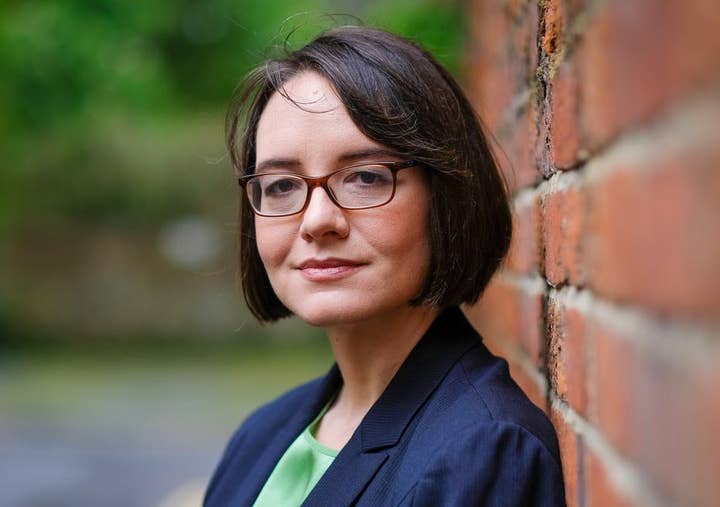Can game studios radically transform how they hire?
Failbetter Games, Sports Interactive and TT Games discuss their approaches to improving diversity in recruitment
To a majority of young people, the games industry can appear to be a pipe dream; an out-of-reach fantasy full of mysterious careers that don't lie at the end of the most traditional routes.
According to UKIE's 2020 industry census, only 21% of people working in games identify as LGBTQ+, 28% are women, and a shocking 10% are people of colour. It is essential that all of these groups feel welcome and represented in games, and it is up to studios and organisations to make that possible.
However, in the past few years, many companies have started to address this concern, opening their doors to make information and resources a little more accessible. In light of the events of the past ten months, many UK games studios are looking critically at their hiring processes, taking into account remote work, accessibility, diversity, and inclusion. We spoke to a few of such studios about the initiatives they are exploring as we head towards a new year.
Sports Interactive, the studio behind the Football Manager series, has introduced a trainee placement programme for young people. It's an opportunity that will provide participants the chance to explore various roles within a studio while gaining an understanding of how everyone comes together to create a successful game.
"Training should be 'designed for people who can't or choose not to go to further education after school'"
Sports Interactive
"The studio-specific training scheme is designed to be a two-year placement across three departments of eight months each," COO Matt Carroll tells us. "For the first intake, we concentrated on more 'support roles' -- community management, communications, business intelligence and quality assurance. We hope to give the trainees the background and experience to see for themselves where they might fit most, and how they can further develop themselves to be more relevant to the roles that exist in the industry."
Carroll believes that visibility on industry processes is vital to "help young people focus on what they need to do themselves to be more in control of their future." Sports Interactive works within education, allowing schools to visit the studio and offering short work experience or shadowing opportunities to students. It also offers placement years to university students, which act as industry experience between the second and third year of studies.
However, Carroll argues that this new traineeship is particularly important because it's "designed for people who can't or choose not to go to further education after school... Unlike apprenticeships that are fixed to a course of study and usually very specific, this is 'on the job' training that gives the individuals a chance to change direction or focus while on the placement."

Not everyone knows what direction they want their career to go when they finish A-Levels, or need to decide on a university. Opening pathways to those not in higher education is essential in making sure there is equal opportunity across the industry.
Failbetter Games is embarking in a similar direction, offering a six-week, paid, remote training opportunity for those interested in exploring games writing. According to creative director Emily Short, "the trainee will work on a guided game writing project, from concept through writing, editing, revising, and briefing artists, and receive mentoring from our senior writers."
This traineeship in particular is specifically open to Black candidates. Following recent, vital conversations surrounding representation in games -- spurred on by the civil rights movement Black Lives Matter -- many studios are looking internally to what they can do better for both Black creators and players.
"We wanted to take positive action in a way that leveraged our strengths as a company," Short adds. "We have a robust writing team and are experienced with working with junior writers, so this kind of traineeship seemed like the best way to use our resources. We felt that giving someone the opportunity to train and network had more value than any financial contribution would."
Sara noticed that being more targeted in their approach by marking the traineeship as explicitly for Black candidates, Failbetter saw a larger number of applicants than any internship experience they had offered before.
"People question whether creating accessible opportunities will mean lots of unqualified candidates. We found the opposite"
Failbetter Games
"Sometimes people question whether creating accessible opportunities will mean that there will be lots of unqualified candidates. We found the opposite: there were many applicants who were very talented but who hadn't come up through traditional paths, and who therefore might have been excluded by a lot of traditionally phrased job ads."
In terms of what advice she would give to other studios interested in running similar initiatives, Failbetter marketing manager Sara Veal highlights careful wording and comment moderation as key in promoting opportunities.
"We recommend taking particular care in the wording of the initiative and finding ways to make the application process as positive as possible. We recommend targeted outreach in order to reach a variety of applicants, beyond our existing circles."
Veal adds: "We learned a few things in the process of promoting this opportunity, which included turning comments off where possible and finding ways to circulate the opportunity that minimised detractors from making abusive comments that could be harmful to potential applicants, since there were some people who were upset by the existence of a targeted opportunity."
This targeted outreach is valuable to studios and potential candidates alike, particularly for studios with a highly specific focus like Sports Interactive.

"We talk to the local colleges like ELAM and community groups like Badu Sport, as they tend to spot those with potential and can help give the young person the confidence to apply," adds Carroll. "I am still very disappointed by the low interest and application rate of women, and this means we need to look in other areas to show that we are a serious option for a fun, engaging, challenging career with growth prospects and a supportive environment. One group we're starting to work with is Code First Girls for example."
Noticing this and acting to level the field and open up opportunities is essential in creating a welcoming environment within this ever-changing industry. Studios have nothing to lose and everything to gain from doing their bit to be more accessible. Carroll shares that the most valuable things he has learnt from young people in the industry are new ideas.
"Young people always come with lots of questions and suggestions and their point of view. The way they interact with media and their expectations of game quality, service, and more are all useful inputs. I enjoy the energy of new team members looking to establish themselves."
Similarly, TT Games does lots of work with young people at college and university level. Head of design Arthur Parsons says that if studios aren't advocating for similar initiatives then "we are not, as an industry, investing in our own futures -- and that's the next generation."
"We are not, as an industry, investing in our own futures -- and that's the next generation"
TT Games
TT Games teamed up with Priestley College last year to provide three substantial internships, and since then two have gone on to full time jobs within the company. To apply, students created a portfolio during their Level 3 Computer Game Development course and attended an interview with the studio. Successful candidates were paid to work four days a week while studying.
However, another interesting statistic from UKIE's census to consider is that 81% of the industry has a university degree, which can serve to make those not in higher education believe that a career in games isn't possible for them. Thankfully, people are noticing this -- as Carroll pointed out previously, Sports Interactive's new traineeship is designed for these candidates.
Long-term initiatives to improve diversity within studios will benefit everyone, and Carroll reminds us that it would only create "a more harmonious studio environment where people feel safe to share their ideas and try new things -- and that is the basis of innovation, optimisation and progression."
This article is supported by Into Games, the UK's non-profit careers service for the games industry, and written by its social and content Lead Millicent Thomas.








